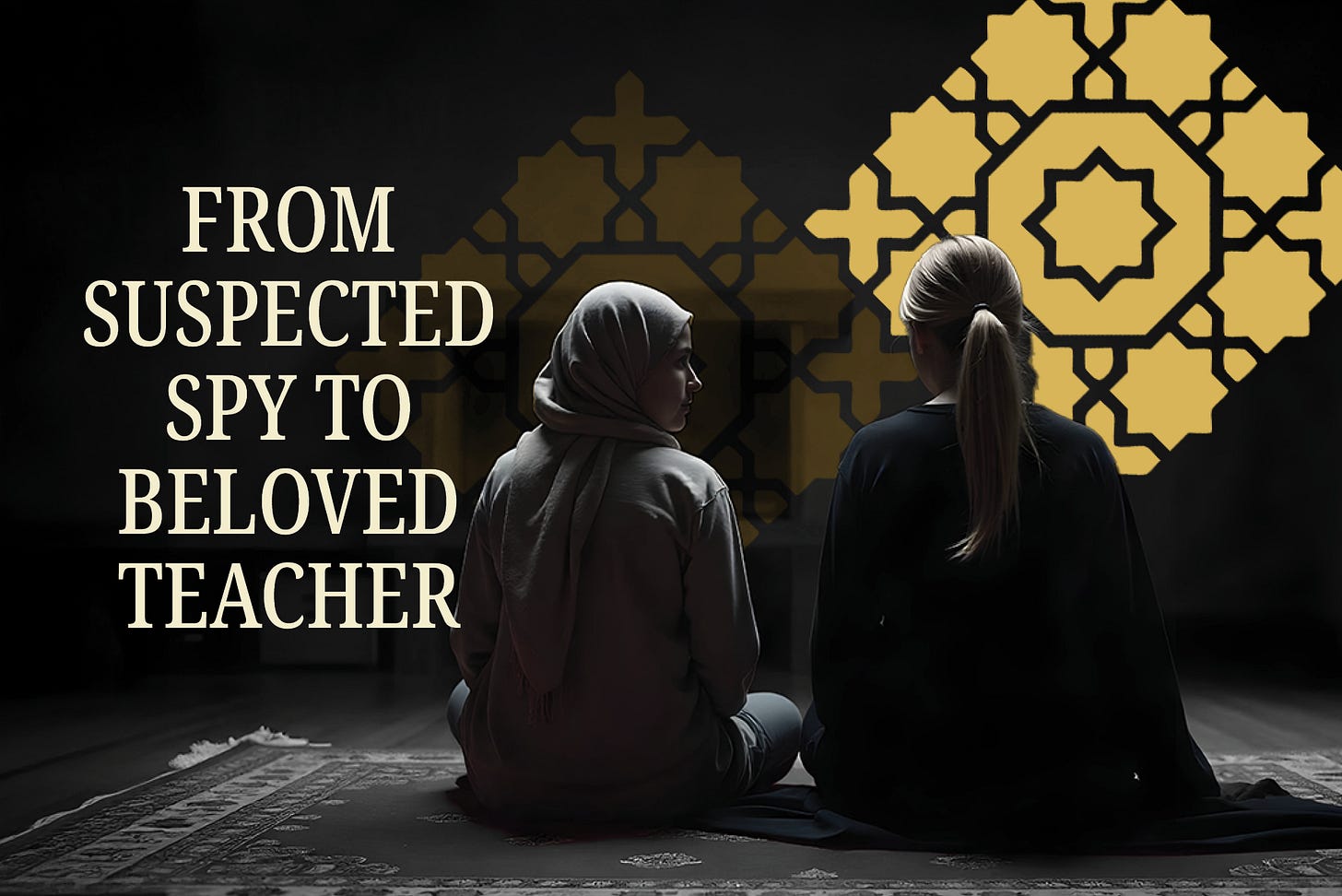From Suspected Spy to Beloved Teacher
In Taliban-controlled Afghanistan, help from the outside often comes with strings. This time, it didn’t.
It was a cold morning in March 2024 when I opened my email and saw a message from Natalie Elvy. She had recently heard about underground education efforts for Afghan girls while listening to the radio, and the story left her stunned. Like many in the West, Natalie knew Afghanistan was a hard place for women, but she hadn’t grasped just how bad things had become.
Natalie, a seasoned English instructor who had spent years teaching English to native French speakers, figured there wasn’t much she could do to make a difference. Still, she decided to try. She offered her services—free of charge—to a handful of programs working with Afghan women, unsure if she’d hear back. Today, just over a year later, she’s become a lifeline for a small group of girls, their only wish being to learn, be heard, and be seen.
Since the Taliban retook power on August 15, 2021, following the collapse of the U.S.-backed Afghan government, women have been pushed out of public life. Girls' schools have shuttered, women have been fired from government jobs, and dress codes and travel restrictions have returned with force.
Violence has surged. Amnesty International recorded 840 attacks on women between January 2022 and June 2024, including 332 killings. The number of women protesting publicly inside Afghanistan has dropped sharply, from 88% in 2021 to just under half a year later. By 2024, over 94% of women-led protests were held indoors or online. Most public demonstrations are simply too dangerous now.
With no way to speak out safely and limited access to information, many Afghan women have turned to self-study, online learning, or underground schools. These efforts are risky. They’re also often underfunded. In a country where 90% of the population lives below the poverty line, the idea of paying for a qualified English teacher is out of reach for most.
When I introduced Natalie to a group of girls learning English through one of these networks, skepticism met her kindness. Sana, a 16-year-old student, recalled thinking Natalie might be a spy. “I was reading a book about espionage at the time,” she told me. “And suddenly this woman from France wants to teach us English? My family was sure she worked for an intelligence agency.”
It wasn’t just Sana. Most of the girls wondered: Why would anyone care this much about us?
They had reason to be cautious. The underground education network, run by the nonprofit organization Ideas Beyond Borders, reaches thousands of students each year, with over 12,000 girls having graduated since 2021. Safety is a constant concern. So Natalie, who came to me not via a formal channel but on her own, underwent a thorough vetting process before she ever met a student.
This experience draws attention to a larger problem: how hard it is for well-meaning individuals to offer help. The barriers are high. But they shouldn’t be.
“In the beginning, we had difficulty understanding her,” said Maryam, 20, from Nangarhar province. She’d made it to the 10th grade before the Taliban stopped her education. An aspiring journalist, she’d dreamed of reading the news on TV. Her sister Marwa, 26, is a medical school graduate who cannot obtain a license under Taliban rule. “Natalie is different,” Marwa said. “She’s patient. She listens. She doesn’t judge us when we struggle.”
Marwa is working toward taking the TOEFL or IELTS exams—possibly her only way out. English, for her, is a passport. Like so many others, her dreams hinge on mastering a language that is not her own.
Sadaf, 21, described the difference in Natalie’s methods: “English teachers here just make us memorize. But Natalie uses images, videos, gestures. Even though she doesn’t speak Pashto or Persian, we still understand her.” The virtual classroom isn’t just about grammar and vocabulary. It’s a place of laughter and rare joy. “Sometimes someone mispronounces a word, and we all burst out laughing. It happens every day.”
Before Eid, several girls showed Natalie their dresses. Another took her phone to the rooftop and pointed it toward the horizon to show Natalie what Kabul looked like from above. “It just looks absolutely incredible out there,” Natalie said.
Natalie isn’t looking for recognition or money. She just wants to teach. And for the young women in her class, that has meant everything. Each one told me the same thing: they wish they had more time with “Teacher Natalie.”
There are thousands of women in Afghanistan like Maryam, Marwa, Sadaf, and Sana. And there are people around the world like Natalie, eager to help but unsure how. The challenge now is to build bridges to make it easier for people like Natalie to reach the people who need them most.
Her efforts are a drop in the ocean compared to the scope of Afghanistan’s crisis. But ask any of her students, and they’ll tell you: it’s the drop that gave them hope for their futures again.
Middle East Uncovered is powered by Ideas Beyond Borders. The views expressed in Middle East Uncovered are those of the authors and do not necessarily reflect the views of Ideas Beyond Borders.




